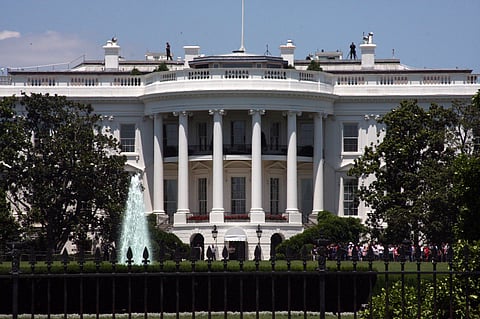

On Sunday, leading officials from the Trump administration defended the president’s sweeping new tariffs, even as global markets reacted negatively to the policy’s rocky launch. Kevin Hassett, who is director of the National Economic Council, said that more than 50 countries have contacted the White House to start trade discussions since the tariffs were announced. This decision, which imposes tariffs on most US imports, has led to retaliatory measures from China and is perhaps going to lead to a long global trade war.
Hassett dismissed the idea that the tariffs were designed to deliberately destabilize markets and pressure the Federal Reserve into cutting interest rates. “There will be no political coercion of the Fed,” he said to ABC’s This Week, despite a since deleted Trump social media post implying such a strategy. Treasury Secretary Scott Bessent downplayed the recent stock market slump which has been the worst since early 2020 saying on NBC’s Meet the Press that strong job growth completely negates recession risks.
The tariffs have been much more aggressive than analysts expected, causing some investors to be a little shaken and drawing some flak from economists. They’re cautioning that these actions could lead to higher inflation and slow down growth. In a mere two days, U.S. stocks fell nearly 10%, with market analysts attributing the downturn to Trump’s trade policy. Still, Hassett said that exporters would take on the costs by reducing prices, which would help shield consumers from any serious consequences.
Countries all around the globe are in a bit of a frenzy trying to figure out their next steps. China has already slapped on some matching tariffs and is preparing for a challenge at the World Trade Organization, while the EU is considering its own countermeasures. Bessent described this chaos as just a temporary bump in the road, saying that in the long run, these tariffs will actually bolster America’s trade standing.